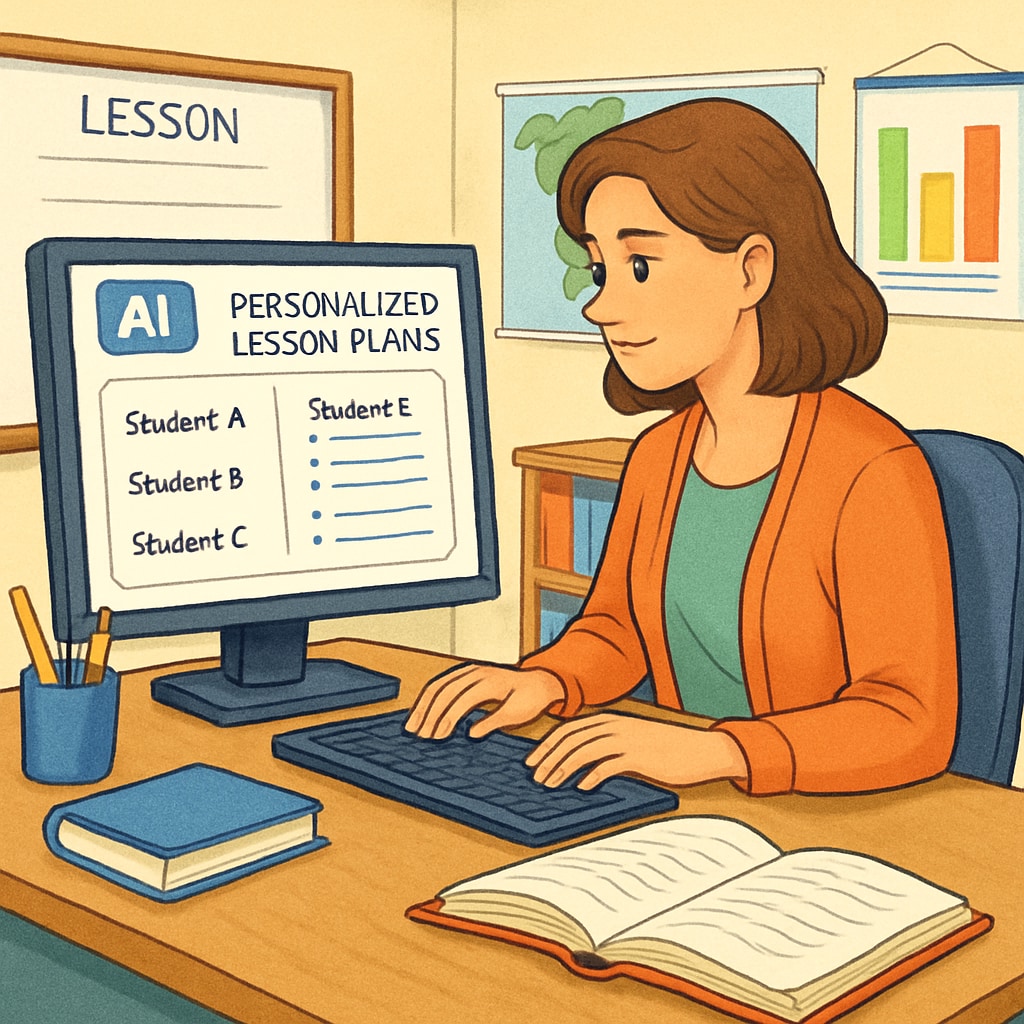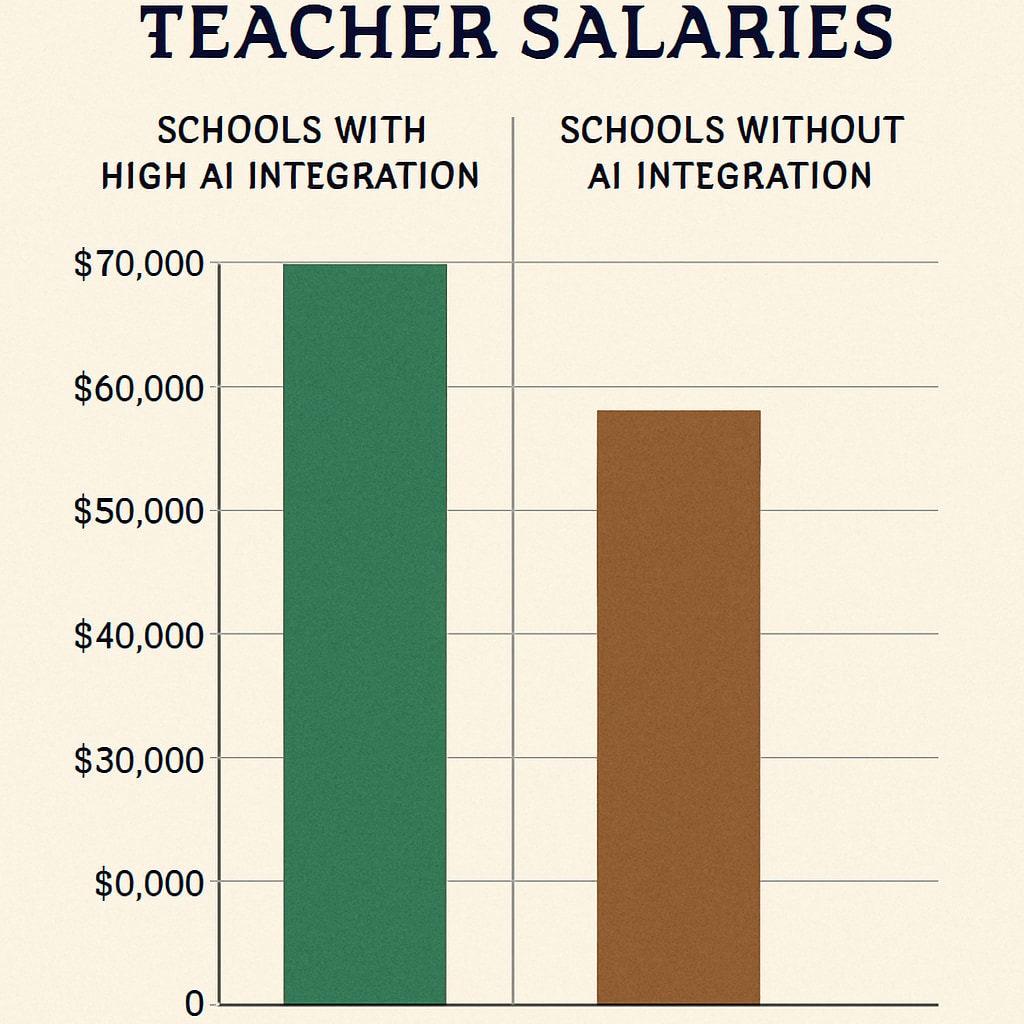The rapid evolution of artificial intelligence (AI), with tools like Google Gemini leading the charge, has sparked a significant debate about its impact on various industries. Among these, education is one field where questions about professional value, roles, and compensation are gaining prominence. How does AI shape the future of teaching? What does it mean for teachers’ value in a world where AI can perform many educational tasks in mere minutes? These are critical questions that the education sector must confront as it adapts to this technological revolution.
AI-Driven Education: A Double-Edged Sword for Teachers
AI’s integration into education offers both opportunities and challenges. On the one hand, tools like Google Gemini can streamline administrative tasks, generate personalized lesson plans, and even grade assignments with remarkable speed and accuracy. This has the potential to free up teachers’ time, allowing them to focus on student engagement and individualized support. On the other hand, these advancements risk diminishing the perceived value of teachers’ traditional roles. If AI can perform a significant portion of a teacher’s responsibilities, society may begin to question whether educators deserve the same level of recognition—or pay.

Furthermore, the increasing reliance on AI in education may require teachers to develop new technical skills, such as managing AI platforms or interpreting AI-generated data. While this can elevate the profession’s technical demands, it also raises concerns about whether teachers are adequately trained or compensated for these additional responsibilities. For educators, the question is clear: What role will they play in this AI-driven landscape, and how will their contributions be valued?
Teacher Compensation: Will AI Widen the Pay Gap?
One critical aspect of the AI revolution in education is its impact on teacher salaries. As AI takes over routine tasks, schools and policymakers might argue for reduced compensation, assuming that teachers’ workloads have lightened. However, this perspective overlooks the evolving nature of the teaching profession. Teachers are not just conveyors of knowledge; they are mentors, motivators, and emotional anchors for students—qualities that AI cannot replicate.
Moreover, the introduction of AI-driven tools could exacerbate existing disparities in teacher pay. Wealthier schools might have the resources to invest in advanced technologies and train their teachers to use them effectively, while underfunded schools might lag behind, leaving their educators at a disadvantage. This disparity could widen the gap in both teaching quality and teacher compensation across different regions. Addressing this inequity will require careful policy planning and investment in professional development for all educators.

Preparing the Education System for AI Integration
To navigate these challenges, the education system must adopt a proactive approach. Policymakers, school administrators, and educators need to work collaboratively to define clear roles for teachers in an AI-enhanced environment. This could include:
- Investing in ongoing training programs to equip teachers with AI-related skills.
- Redefining teacher evaluation metrics to emphasize soft skills, such as empathy and creativity, that AI cannot replicate.
- Ensuring equitable access to AI tools across schools to prevent disparities in education quality and teacher compensation.
In addition, public awareness campaigns could help highlight the unique, irreplaceable value of teachers, reinforcing their importance in society even as AI becomes more prevalent. For example, while AI can analyze data, it cannot understand the nuances of a student’s emotional state or foster the kind of human connection that inspires lifelong learning.
The Future of Teaching: Beyond AI
Ultimately, the rise of AI in education is not about replacing teachers but augmenting their capabilities. Teachers will need to shift from being sole providers of knowledge to becoming facilitators of learning experiences, guiding students in critical thinking, creativity, and emotional intelligence. These are areas where human expertise will always surpass AI.
As the education sector embraces AI, it is crucial to remember that technology should serve as a tool, not a substitute. Teachers’ roles are evolving, not disappearing. By recognizing and investing in the unique value that educators bring to the table, society can ensure that the teaching profession remains both relevant and rewarding in the AI era.
Readability guidance: This article uses short paragraphs, clear transitions, and lists to improve readability. It balances technical terms with accessible language and maintains a focus on actionable insights for educators and policymakers.


